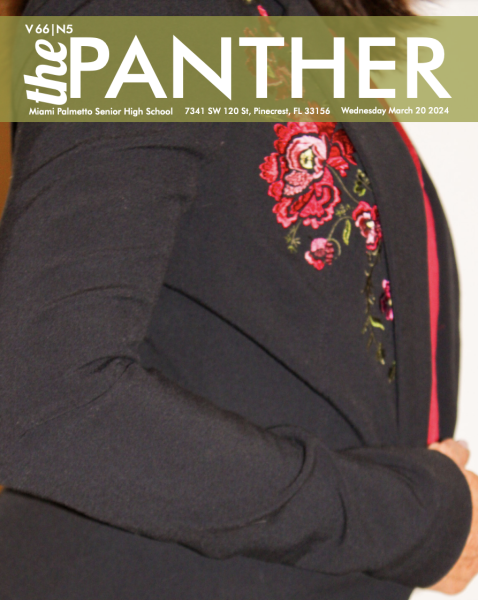EDITORIAL: The Difficulties of Politics as a Teenager
October 29, 2020
Politics suck. Hearing that from a 17-year old high school senior probably does not sound that shocking, but they really do, especially in our current election cycle. Politics in this day and age make it extremely difficult for teenagers to engage, especially those with different views from their contemporaries.
Before I begin analyzing all the events that have shaped my thoughts and views on politics today, I would like to make one thing clear: I do not support Donald J.Trump or the Republican party, but I do not support the Democratic Party either. I identify more as an independent than anything else. Insane, I know. That is why I chose to write this article. To explain that not everyone or everything has to be far left or right; to reestablish the middle ground that our country’s current political system desperately needs to find once again.
Growing up, I remember hearing about Barack Obama, Mitt Romney and John McCain while my parents watched the evening news. As a kid in elementary school who still had a gap in his teeth, I did not understand much of what was going on, but I never heard any shouting matches on my television set or nasty commentary from the media and political advisors.
I had never truly paid attention to politics until the 2016 election, where I now look back on how my political naiveté easily influenced my views. In a family that typically votes Democrat, headlines about Donald Trump completely dominated the news cycle. All of the controversies that Trump stirred up scared me away from the Republican party, which led me to join the rest of my family in backing Hillary Clinton and the Democratic party.
Clinton ended up losing the election, and 13-year-old me felt devastated. At the start of Trump’s presidency, I remember fervently denying any policy Trump passed, always siding with Democrats on any political issues. Eventually, during my sophomore year of high school, I started to look at politics in an unbiased fashion, rather than blindly going against anything Trump did and supporting anything his opponents proposed.
I maintained some views that aligned with the Democratic party, such as supporting LGBTQIA+ rights and the Black Lives Matter movement. However, some of my other stances, such as fiscal policy and views on the role of government, ended up aligning more with Republican views than I previously thought. Most of my views all had one thing in common: they seemed much closer to the middle than to either end of the political spectrum. This seems like it would make it easier to partake in political discussions, but in reality, it has the opposite effect.
Any time my friends get into political debates, I can never seem to agree with either side. My more conservative friends tend to back Trump and all of his policies, while my liberal friends tend to advocate for radical policies that resemble the ideologies of politicians like Alexandria Ocasio-Cortez. As someone who has views that do not align with either side, I frequently have to withhold my political views to avoid sparking a debate with anyone I talk to.
This has been an issue in discussions anywhere and everywhere I go. When I text some of my Republican friends, they try to slip in a joke about how Trump is going to dominate Biden in the election, and I have to laugh it off while trying to not spark a debate. In the classroom, I hear nonstop arguments about how Trump is either undoubtedly the worst president of all time or the best president in modern American history since Ronald Reagan. At family gatherings, I have to ignore some of my relatives lauding Trump as a champion for “the silent majority” and the greatest patriot this country has seen since George Washington. Playing the role of the middle man gets tiring quickly; it can feel impossible to appease either side at times.
In today’s politics, people let their visions of Trump get in the way of what he actually does. Most of his supporters see him as an American success story and their own personal superhero. Meanwhile, a lot of his opponents see him as the worst thing that has ever happened to American politics and the biggest threat the country has ever faced. Personally, I do not think Trump is a good president; I have him ranked near the bottom of my U.S. President Rankings (yes, I ranked all 44 U.S. Presidents, and no, I do not know why), but I also do not have him as the worst (sorry, James Buchanan).
It seems to me that today, American politics has become so focused on partisan separation that we have lost the middle. Nowadays, you cannot evaluate both sides of an argument and compromise; you have to pick one or the other, which makes it very difficult for young people to engage in politics.
Obviously I cannot simply return to my days of youthful ignorance, when I picked my favorite candidate based on how tall they were or which one had the coolest outfits and the word “politics” had yet to enter my mind. But it would be nice to at least share my opinions with someone and have them share theirs with me without a conflict arising. My two best friends have wildly different political views, one being a far-left liberal and the other being a right-leaning libertarian. But that makes our friendships so beautiful; we listen to one another and respect each others’ beliefs without letting it affect our bonds. If all Americans acted like this, politics would not have such a bad reputation. We just need to listen to each other more often.









